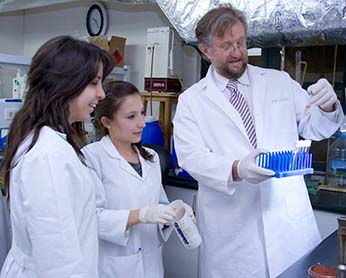Los tutores: ¿esenciales para potenciar la producción científica estudiantil?
Abstract
Nos sentimos identificados con la carta de Fernández Díaz donde expresa que la investigación científica estudiantil debe estar guiada por un profesor en calidad de tutor.
En nuestra experiencia personal somos vivos ejemplos del impulso positivo que han realizado nuestros tutores en la potenciación de habilidades investigativas, pues sin la maestría, horas de dedicación y oportunos comentarios del Dr. José Pedro Martínez Larrarte, DrC. Alberto Juan Dorta Contreras, DraC. Estela Morales Peralta, Dra Amparo Rivera Valdespino, DraC. Adania Siva Guanche Martínez, Dra. Caridad Luna Vázquez, DrCs. Nibaldo Hernández Mesa, por solo citar algunos, no hubiésemos alcanzado los logros que en materia de ciencia ostentamos.
La experiencia profesional del tutor a partir de su propia actuación como docente que se caracteriza por la integralidad, coherencia y sistematización creadora, permite potenciar en sus tutelados las competencias necesarias para la investigación científica en función de la solución de problemas, que transforme la realidad para el mejoramiento de la calidad de vida de la población a la que presta servicios.
Downloads
References
1. Fernandez Díaz YD. Necesidad de un promotor del estudiante de ciencias médicas para incentivar la producción científica. Rev. Ciencias Médicas de Pinar del Río. Mayo-junio, 2016; vol 20 (3):277-278.
2. Alpízar Caballero LB, Añorga Morales J. La actividad del tutor de la educación médica desde los principios de la educación avanzada. Rev Cub Med Mil. 2014; 43(2): 237-248.
3. Gonzalez-Argote J, Garcia-Rivero AA, Dorta-Contreras AJ. Producción científica estudiantil en revistas médicas cubanas 1995-2014. Primera etapa. Inv Ed Med. 2016;5(19):155-163. DOI: 10.1016/j.riem.2016.01.023.
4. Taype-Rondán A, Palma-Gutiérrez E, Palacios-Quintana M, Carbajal-Castro C, Ponce-Torres C. Producción científica estudiantil en Latinoamérica: un análisis de las revistas médicas de habla hispana indizadas en SciELO, 2011. FEM 2014; 17 (3): 171-177.
5. Moreno Ruiz I, Cabrera Linares AE, Morales Torres Y. Estrategia para perfeccionar la actividad científica estudiantil en la Facultad de Ciencias Médicas de Ciego de Ávila. Rev 16 Abril 2009; 236. [Consultado Ago 08 2016] Disponible en: http://www.16deabril.sld.cu/rev/236/02.html.
6. Castejón Cruz OA. Investigar Y Publicar En El Pregrado De Medicina. ¿Por Qué Y Para Qué?. SCIENTIFICA [revista en la Internet]. 2014 [citado 2016 Ago 08]; 12(1): 129-130. Disponible en: http://www.revistasbolivianas.org.bo/scielo.php?script=sci_arttext&pid=S1813-00542014000100022&lng=es.

Published
How to Cite
Issue
Section
License
Authors who have publications with this journal agree to the following terms: Authors will retain their copyrights and grant the journal the right of first publication of their work, which will be publication of their work, which will be simultaneously subject to the Creative Commons Attribution License (CC-BY-NC 4.0) that allows third parties to share the work as long as its author and first publication in this journal are indicated.
Authors may adopt other non-exclusive license agreements for distribution of the published version of the work (e.g.: deposit it in an institutional telematic archive or publish it in a volume). Likewise, and according to the recommendations of the Medical Sciences Editorial (ECIMED), authors must declare in each article their contribution according to the CRediT taxonomy (contributor roles). This taxonomy includes 14 roles, which can be used to represent the tasks typically performed by contributors in scientific academic production. It should be consulted in monograph) whenever initial publication in this journal is indicated. Authors are allowed and encouraged to disseminate their work through the Internet (e.g., in institutional telematic archives or on their web page) before and during the submission process, which may produce interesting exchanges and increase citations of the published work. (See The effect of open access). https://casrai.org/credit/


